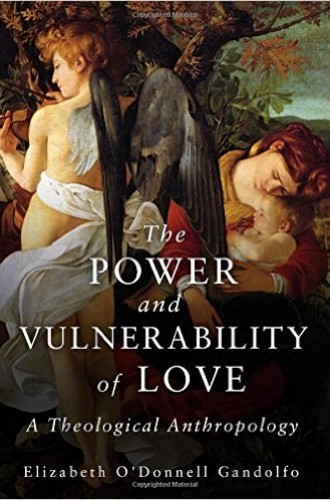God in weakness
If Jürgen Moltmann and Brené Brown collaborated on a book, what might emerge is something like Elizabeth Gandolfo’s The Power and Vulnerability of Love. The volume is framed as a theological anthropology, and it is that: a consideration of what human beings are, with reference to who their creative, redeeming, and sustaining God is. But this, Gandolfo’s first book, is not just an anthropology. It also offers a statement about God that is its more daring and abidingly important gift.
Perhaps this is true of all theological anthropologies: in order to say something insightful about the kinds of creatures human beings are, one must say something about who God is, and because God is more interesting than we are, the theologian’s claims about divinity will always be the most arresting part of the project.
Gandolfo wants to offer an account of God’s vulnerability, and she comes to that account via a discussion of human vulnerability as it is crystallized in childbirth and motherhood. Many of us middle-class Westerners have found ways to fend off the reality of our vulnerability, but certain experiences—old age would be another—puncture the protections we’ve developed and show us our fundamentally vulnerable state. Motherhood exposes the way human beings are vulnerable to “bodily harm, suffering, and, ultimately, our unavoidable mortality.” Mothers and babies can die in childbirth; some mothers are wrecked by “the living death of . . . obstetric fistula”; and motherhood exposes human vulnerability in the interdependence of mother and child, in their intersubjective “relational existence.”





